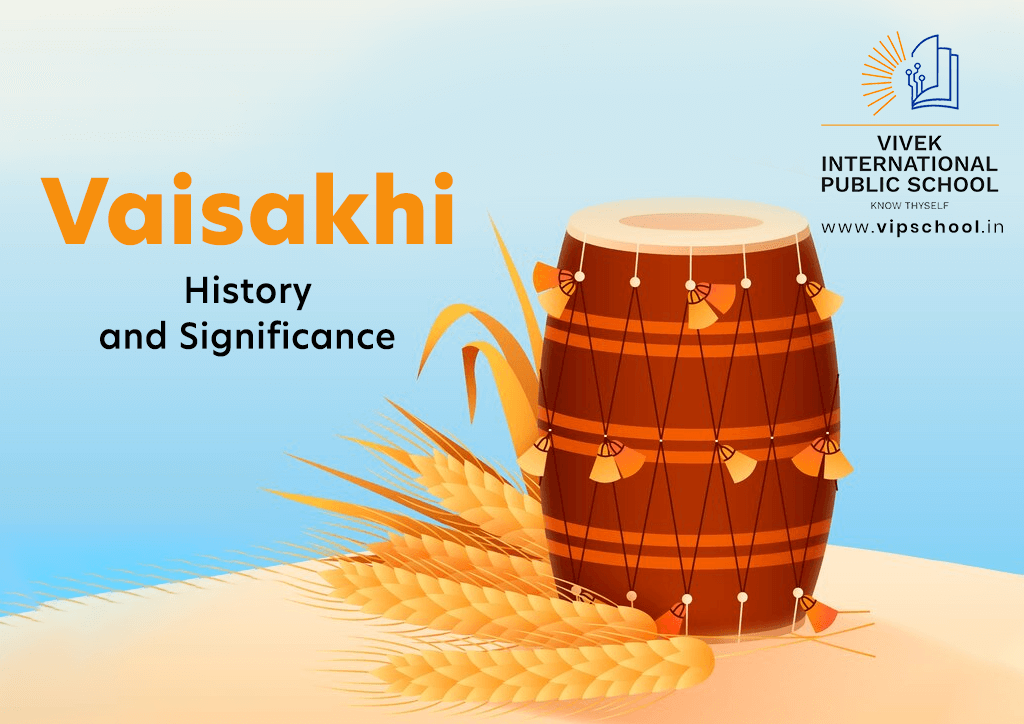News & Events
Vaisakhi – History, Significance and How It Is Celebrated

Vaisakhi or Baisakhi is a vibrant cultural festival celebrated in Punjab and other Northern Parts of India on the 13th or 14th of April or the first day of Vaisakh Month. It marks the arrival of spring and the harvest of winter crops. Communities such as Hindus, Sikhs, and Muslims celebrate this auspicious festival.
Although it originated as a regional festival, it gained significant importance for the Sikh community after the formation of the Khalsa Panth by Guru Gobind Singh Ji, the tenth Sikh guru. On Vaisakhi, the first day of Vaisakh, Sikhs commemorate the birth of Khalsa, which stands for pure, and remember the commitment of the Panj Pyare (five beloveds).
Muslims celebrate Vaisakhi due to its agricultural significance, shared cultural heritage, social harmony, and the enjoyment of communal festivities regardless of religious affiliation. Let’s learn more about Vaisakhi, its history, and how various communities celebrate this festival!
History of Vaisakhi
The origins of Vaisakhi can be traced back to the agricultural practices of Punjab, India. It started as an agricultural festival celebrating the harvest of winter crops and transformed into a significant religious observance. The celebration of abundance symbolised prosperity and the start of a new agricultural cycle.
Over time, Vaisakhi has gained religious significance, especially in the Sikh community. In 1699, Guru Gobind Singh Ji chose Vaisakhi to lay the foundation of Khalsa Panth and baptised five individuals known as Panj Pyare. Since then, the Sikhs celebrate the first day of Vaisakh as the Birthday of Khalsa.
Throughout history, Vaisakhi has evolved from a simple harvest festival to a multifaceted celebration encompassing religious, cultural and historical dimensions. This festival continues to be observed with reverence and joy by millions of people, serving as a reminder of Punjab's rich heritage and the enduring spirit of its people.
How People in Punjab Celebrate Vaisakhi?
The people of Punjab and Farmers celebrates Vaisakhi with lots of joy and enthusiasm. Here is what usually happens:
- Colourful fairs called Vaisakhi Mela are organised in many villages and towns of Punjab.
- The Farmers thanks God for good crops and prays for another successful year.
- Many people arrange Langars (free kitchen) as gesture of giving back to the community.
- Additionally, many people volunteer on this occasion and engage in seva (selfless service), like cleaning up neighbourhoods or feeding the homeless.
Also read, Importance of History in Shaping Present and Navigating Future
How Other Communities Celebrate Vaisakhi?
People in other communities celebrate Vaisakhi or Baisakhi in various ways, including visiting temples, ritual bathing, giving and charity, community gatherings, and cultural performances. Go through the below points to learn more:
- Ritual Bathing: Many families celebrate Vaisakhi by bathing in sacred rivers such as the Ganges, Jhelum or Kaveri. This act is believed to cleanse the soul and bring spiritual purification.
- Temple Visits: People visit temples to offer prayers and seek blessings from god. Special Vaisakhi prayers and rituals may be performed to invoke divine blessings for prosperity and well-being.
- Charity and Giving: Vaisakhi is also a time for charitable acts, known as daan. People donate food, clothes, or money to those in need.
- Cultural Performances: In some states, people celebrate Vaisakhi with vibrant cultural performances such as folk dances like Giddha and Bhangra.
- Community Gatherings: People of various communities come together with family to celebrate the festival of Vaisakhi through social events and community gatherings.
On the Final Note
Vaisakhi is celebrated on the 13th or 14th of April every year in and nearby states of Punjab by Hindus, Sikhs, and Punjabi Muslims. But Sikhs have more religious significance for Vaisakhi as Guru Gobind Singh Ji, the tenth Sikh guru, laid the foundation of Khalsa Panth on this day. The entire community of Sikhs, Hindus, and Muslims celebrates Vaisakhi joyfully and enthusiastically. Men usually wear traditional clothes like Kurta Pyjamas on Vaisakhi, while women wear bright suits and adorn beautiful ornaments.

